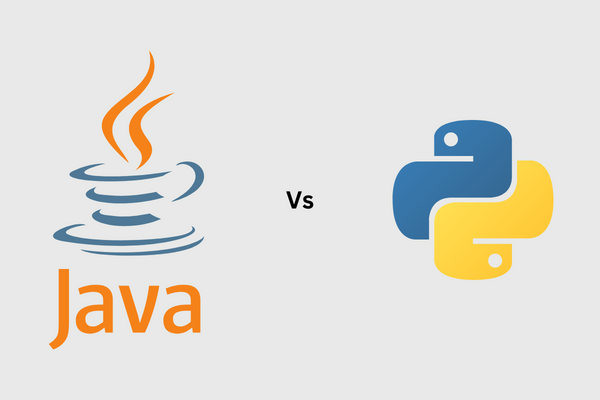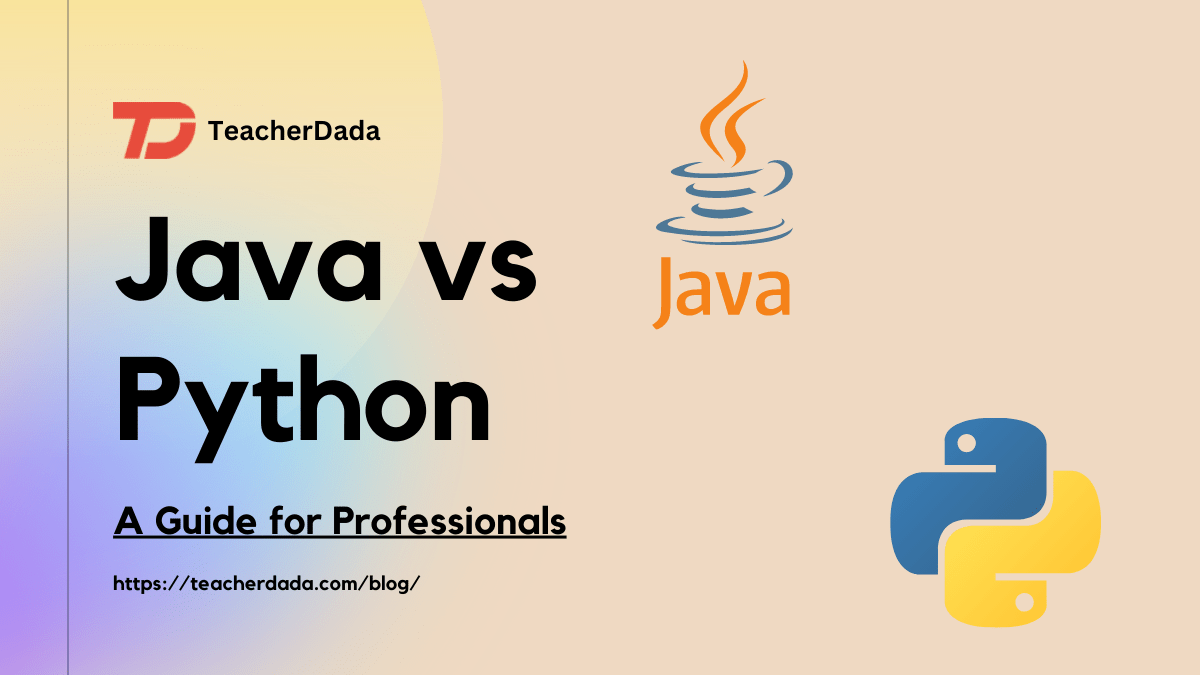When it comes to choosing a programming language for your next project, it can be an overwhelming task. There are so many options available, such as Java, Python, C++, and more. In this blog, we’re going to take a look at two of the most popular languages – Java and Python – and compare them. We’ll discuss their benefits, performance, libraries, syntax, development tools, use cases, and more. By the end of this article, you’ll have a better understanding of which language is right for your project.

Introduction to Java and Python
Java and Python are two of the most popular programming languages in the world. Java is a general-purpose, object-oriented language that was first released in 1995. It is used for developing software applications, web applications, and mobile applications. It runs on the Java Virtual Machine (JVM) and can be used on any platform, making it a great choice for cross-platform development. Python is a high-level, interpreted language that was first released in 1991. It is used for developing web applications, software applications, and scripting. It is known for its readability and simplicity, making it a great choice for beginners.
Benefits of Java and Python
Java and Python both have their own unique benefits. Java is a statically-typed language, which means that all errors can be caught during compilation. This makes it easier to debug and maintain code. It also has a huge community of developers and a wide range of development tools and libraries. Python is a dynamically-typed language, which makes it easier for beginners to learn. It is also known for its readability and flexibility, making it easier to write code. It also has a large community of developers and a wide range of development tools and libraries.
Java vs Python: Which Should You Choose?
When it comes to Java vs Python, the best language to choose depends on your project. If you’re looking for a language that is easy to learn and read, then Python is the best choice. It is also great for scripting and web development.
On the other hand, if you’re looking for a language that is fast and reliable, then Java is the best choice. It is also great for mobile development and software development.
Performance Comparison – Java vs Python
When it comes to performance, Java and Python are both fast and reliable. Java has a JIT compiler, which makes it faster than interpreted languages like Python. On the other hand, Python has an extensive library of modules and functions, which makes it faster than compiled languages like Java.
- Python and Java are both object-oriented languages, but Java uses static types, while Python is dynamic. This is the most significant difference between them. Java is a compiled and statically typed language, which means that the code must be compiled before it can be run and the type of each variable is determined before the code is compiled.
Python is an interpreted language, which means that the code is not compiled before it is run. This makes Python a more flexible language than Java, as it allows for faster development time and easier debugging.
- Other key differences between Java and Python include their syntax, speed, applications, and more. Python is slightly more popular than Java, at the moment (2021) according to GitHub Octoverse, Stackoverflow, and Google Trends. Python is often used for scientific and numeric computing, while Java is better suited for web applications, desktop GUI apps, enterprise solutions, and embedded systems.
Python is also known for its simplicity and ease of use while Java takes a bit longer to learn. Python is faster to develop, but Java is faster in terms of execution speed. Ultimately, both languages are excellent and very popular. Assessing the key differences between them is the best way to choose which one is better.
Advantages and Disadvantages of Java
Java has a number of advantages and disadvantages. Advantages of Java include its simple syntax, object-oriented programming, robust memory management, secure environment, and platform independence.
Disadvantages of Java include its slower execution speed compared to languages like C and C++, its higher memory consumption, its cost, and its lack of direct machine interaction. Ultimately, Java is one of the most popular programming languages due to its advantages, making it platform-independent, secure and robust.
Advantages and Disadvantages of Python
The advantages of Python include its easy-to-learn syntax, its integration feature, its improved productivity of programmers, its support for multiple programming paradigms, its open-source license, and its portability. Disadvantages of Python include its slower execution speed compared to compiled languages, its lack of direct machine interaction, and its relatively weaker database access.
Java and Python Libraries
Both Java and Python have an extensive library of modules and functions. Java has the Java Development Kit (JDK) and the Java Runtime Environment (JRE). It also has a wide range of third-party libraries and frameworks.
Python has the standard library, which contains built-in modules and functions. It also has a wide range of third-party libraries and frameworks, such as NumPy, SciPy, and Matplotlib.
Java and Python Syntax
Java and Python have a different syntax. Java has a fixed syntax, which means that all code must be written in a specific format. It also requires the use of semicolons and braces.
Python has a more flexible syntax, which makes it easier for beginners to learn. It does not require the use of semicolons or braces and allows for more freedom in writing code.
Java and Python Development Tools
Both Java and Python have a wide range of development tools. Java has the popular Integrated Development Environment (IDE) Eclipse. It also has a wide range of third-party IDEs, such as IntelliJ and NetBeans.
There are many popular Java and Python development tools available for developers. For Java, popular tools include Eclipse, NetBeans, Apache Maven, IntelliJ IDEA, and more. For Python, popular tools include PyCharm, SciPy, Atom, Visual Studio Code, and more. Each tool has its own set of features and advantages and each is designed to meet the needs of different developers.
For example, PyCharm is great for Python development, while IntelliJ IDEA is great for Java development. Depending on the type of development you are doing, you may want to use one tool over another.
.Java and Python Use Cases
Java and Python are both used for a wide range of applications. Java is used for developing web applications, software applications, and mobile applications. It is also used for developing enterprise applications and games.
Python is used for developing web applications, software applications, and scripting. It is also used for data analysis, machine learning, and artificial intelligence.
Cost Comparison – Java vs Python
When it comes to cost, Java and Python are both free to use. However, Java does require a license for commercial use, and Python does not.
Conclusion
When it comes to choosing a programming language for your next project, it can be an overwhelming task. Java and Python are two of the most popular languages, and each has its own unique benefits. Java is a statically-typed language that is fast and reliable, making it a great choice for software development and mobile development. Python is a dynamically-typed language that is easy to learn and read, making it a great choice for scripting and web development. By understanding the benefits and use cases of each language, you’ll be able to make an informed decision about which language is right for your project.
Frequently Asked Questions
What is the difference in Java Vs Python?
The main difference between Java and Python is their syntax. Java is a statically-typed language that has a fixed syntax, while Python is a dynamically-typed language that has a more flexible syntax. Java is also faster than Python, as it is a compiled language. Python is easier to learn, as it is an interpreted language.
Which is more in demand Java or Python?
A: According to the latest trends, the demand for Python is much higher than Java. Python tops the list of most loved programming languages, and was in the top three languages developers said they wanted to learn in 2019. The Github Octoverse shows JAVA as the second most demanded language, followed by python. Additionally, Python is often used for machine learning and data science applications, which are in high demand today.
Who gets paid more Java or Python?
As per the 2021 Stack Overflow Survey, professional Java developers earn $51,888/year globally, whereas dedicated Python developers earn $59,454k/year globally. So, Python developers have a slight advantage in the global market when it comes to salary. However, this could be a determining factor in favor of Python.

